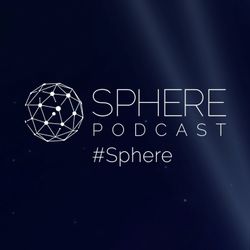Project Sphere Podcast
All Episodes

Is Bad Housing Policy Making Poverty Worse?
24:27|Housing policy plays a critical role in shaping poverty in America, influencing both the availability of affordable housing and the stability of low-income communities. With skyrocketing housing costs, inadequate affordable housing options, and policies that often fail to address the root causes of poverty, millions of Americans continue to struggle with housing instability. In this episode, Emily Hamilton, Senior Research Fellow and Director of the Urbanity Project at the Mercatus Center and Tracy Hadden Loh, Fellow at the Anne T. and Robert M. Bass Center for Transformative Placemaking at the Brookings Institution, discuss whether bad housing policy is making poverty worse.

What Is the Problem with Immigration, and What Should We Do about It?
36:51|Immigration in the United States has long been a contentious issue, marked by debates over border security, economic impact, and social integration. While some argue that immigration is the driving force behind the nation’s growth and cultural diversity, others have concerns over border security, undocumented immigration, and the strain placed on public services. But is immigration itself the problem, or do the problems stem from immigration policies in place? In this episode, join David Bier, director of immigration studies at the Cato Institute, Wendy Edelberg, senior fellow in economic studies at the Brookings Institution, and Simon Hankinson, senior research fellow in the Border Security and Immigration Center at The Heritage Foundation as they discuss immigration.
Election Integrity: How Do We Restore Faith in Our Election System?
45:37|The legitimacy of election results and integrity of our voting process have increasingly come into question, and while few claims of election fraud have been found to have substance, these claims have consequences. If American citizens don’t have faith in their election system, the peaceful transfer of power between political parties can become contentious. Some are calling for reforms to our voting process, from ranked-choice voting to primary reform, and to alter or completely do away with the electoral college. So how should we address concerns about election integrity and make sure Americans feel confident in election results? Director of Sphere Education Initiatives Allan Carey discusses these issues with Walter Olson, senior fellow at the Cato Institute’s Robert A. Levy Center for Constitutional Studies, Jeanine Abrams McLean, president of Fair Count, and Dan McLaughlin, senior writer at National Review Online and fellow at National Review Institute.
In What Areas Does the Executive Have Too Much Power?
29:17|The framers of the United States Constitution created three branches of government—the legislative, the executive, and the judicial—with powers distributed among the branches. To guard against tyranny, each branch was granted specific powers to check the powers of the other two branches. As James Madison wrote in Federalist Paper No. 51, “Ambition must be made to counteract ambition.” Yet the authority of the president and the executive branch has expanded dramatically since the American founding, largely with congressional permission. In this episode, join Sarah Binder, senior fellow in governance studies at the Brookings Institution, Chris DeMuth, distinguished fellow in American thought, B. Kenneth Simon Center for American Studies at the Heritage Foundation, and Gene Healy, senior vice president for policy at the Cato Institute to consider “In what areas does the executive have too much power?”Sarah A. Binder: https://www.brookings.edu/people/sarah-a-binder/Chris DeMuth: https://www.heritage.org/staff/chris-demuth Gene Healy: https://www.cato.org/books/the-cult-of-the-presidency
Does Restricting Trade Improve National Security?
34:06|International commerce has created an interconnected world. Nobel Prize-winning economist Milton Friedman believed that unfettered free trade is always in people's best interests, as they have the freedom to buy and sell whatever they want, with whomever they want. Others argue that trade should be restricted and that we ought to prioritize domestic production and consumption. Between these two extremes lie most of today's trade policy: managed trade, in which the government intervenes to affect where goods and services are produced. Conversations around when trade should be restricted are often concerned with how trade in goods and services affect our national security. But are the measures taken to restrict international trade actually improving our national security? Joining Project Sphere’s Sallie James to consider this question are Arthur Herman, senior fellow at the Husdson Institute, Scott Lincicome, vice president of general economics at the Cato Institute, and Josh Meltzer, senior fellow at the Brookings Institution. Arthur Herman, senior fellow and director of the Quantum Alliance Initiative, Hudson Institutehttps://www.hudson.org/foreign-policy/biden-weakened-us-world-stage-china-taking-advantage-xi-jinping Scott Lincicome, VICE PRESIDENT, GENERAL ECONOMICS AND STIEFEL TRADE POLICY CENTER, CATO INSTITUTEhttps://www.cato.org/commentary/six-plus-years-incoherent-ineffective-china-policy Josh Meltzer, Senior Fellow, Global Economy and Development, Brookings Institutionhttps://www.brookings.edu/articles/the-us-canada-and-mexico-need-a-more-coordinated-approach-to-their-trade-relationships-with-china/
Why Do We Have a Housing Crisis and What Should We Do about It
28:48|The United States is experiencing a housing crisis, with a scarcity of homes available and skyrocketing prices. Polls indicate that housing affordability is one of the top issues this election, especially among younger voters. In this episode, Nolan Gray, Research Director at California YIMBY and Howard Husock, Senior Fellow at the American Enterprise Institute discuss why we have a housing crisis, and what we should do about it.
How Does A.I. Affect Education?
27:54|Artificial Intelligence is increasingly being used in classrooms across the country. But educators disagree about whether students should be allowed to use A.I. in their coursework. Some teachers feel that using A.I. tools such as ChatGPT amounts to cheating, while others think that students should be allowed to experiment with A.I. tools that they will likely use in their later careers. Is there a way to empower students to harness A.I. tools while still promoting student creativity and critical thinking? And how will the use of A.I. affect education in the long term? In this episode, Jennifer Huddleston, technology policy research fellow at the Cato Institute, Nicol Turner Lee, director of the Center for Technology Innovation at the Brookings Institution, and Mark Meador, partner at Kressin Meador and visiting fellow in technology at the Heritage Foundation discuss: How Does A.I. Affect Education?
loading...